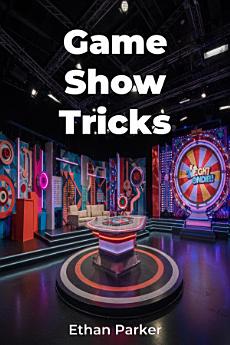Game Show Tricks
Über dieses E-Book
The book uncovers how elements like set design and music build tension, and how contestant selection prioritizes charismatic and emotionally expressive individuals. The book delves into how producers employ psychological techniques to maximize viewer engagement, such as framing effects and social pressure. It examines the evolution from vaudeville roots to modern television, highlighting how cognitive biases and behavioral economics play a crucial role.
By combining theoretical analysis with insights from industry professionals, Game Show Tricks goes beyond fan-oriented perspectives to offer a critical examination of game show mechanics. The book begins with the foundational aspects of game show design, transitions into contestant selection processes, and concludes with the psychological techniques used by producers. It draws upon diverse sources, including game show episodes, interviews, and research from psychology, media studies, and game theory, to uncover the calculated nature of entertainment.
Ultimately, this detailed exploration encourages a more informed and critical engagement with popular media.








